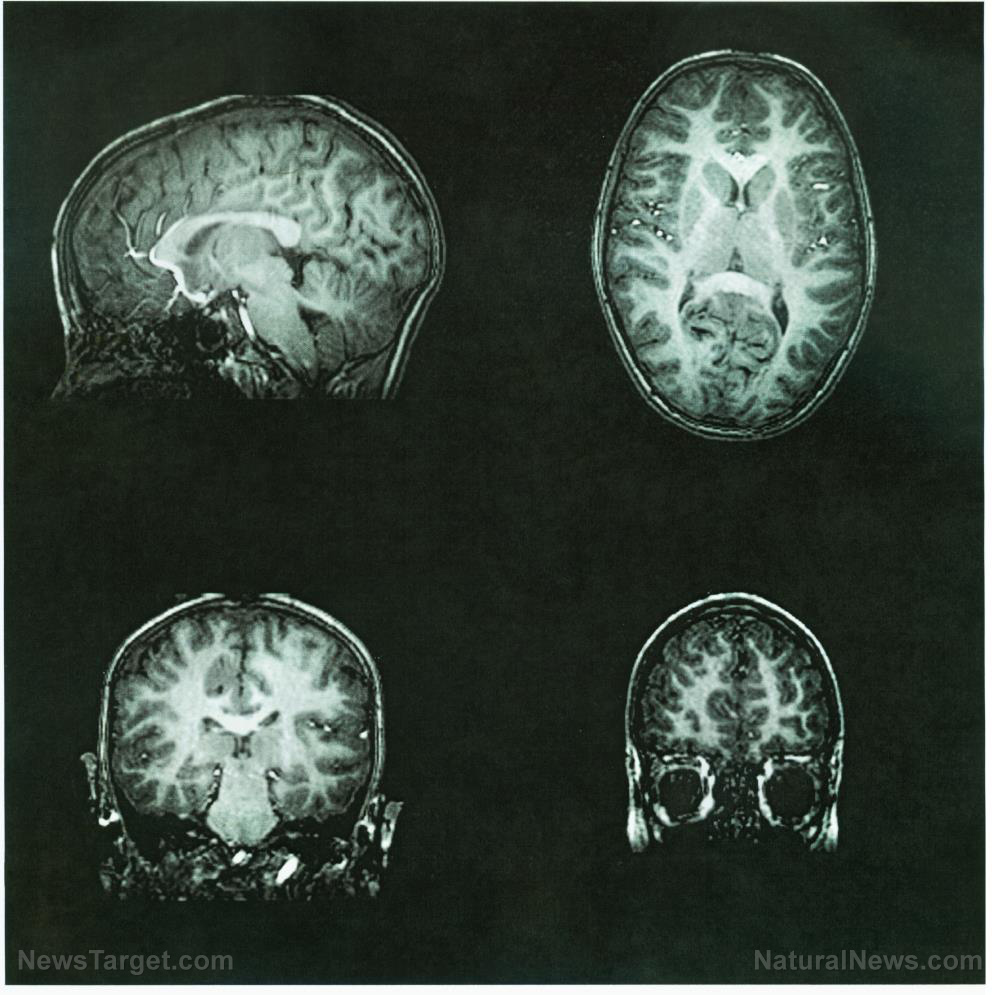The Brain Bro
10/05/2016 / By supplementsreport

Forget Adderall. Forget Provigil. Eric Matzner says his nootropics will make your brain sharper in weeks.
Article by Olga Khazan
It was 7 p.m. on a Thursday, and Eric Matzner had gathered a group of bio-hackers and futurists in a bright room in San Francisco’s Mission District for an invite-only Meetup. The event promised to school them in “nootropics,” or cognitive-enhancement pills, like the ones he sells through his start-up, Nootroo.
Matzner’s pills come in “gold” and “silver” formulas, which are to be taken on alternating days. Over time, they’re intended to enhance focus, memory, and cognitive function. The pills are what he does for money, but it’s talks like these—the chance to evangelize about nootropics—that really fire him up.
“I’m basically going to cover how they came about and, like, a little bit of their properties,” said Matzner, launching his slide deck. The first slide featured a portrait of Corneliu E. Giurgea, a Romanian scientist regarded as the father of nootropics, and a quote from him: “Man will not wait passively for millions of years before evolution offers him a better brain.” With that, Matzner, who is 28, began rocketing through the history and science of nootropics at a pace typically heard only at debate tournaments.
He opened the floor to questions. About half the audience had already tried nootropics, but some seemed skeptical.
“If you want to be seen as more than a snake-oil salesman,” one man said, “you need to have some sort of app using video games or other tasks that we can use to test your product.”
“Hundred percent agree with you!,” Matzner exclaimed. “Already under development!”
Matzner heard the call of nootropics five years ago. He was living in New York, running a different start-up and struggling to manage everything himself. One minute he’d be coding something; the next, he’d be reading a book about advertising so he could write some ad copy. At first, he turned to prescription medications, including amphetamines and modafinil (also marketed as Provigil), an anti-narcolepsy drug. But he soon realized that what he needed was not simply wakefulness so much as the ability to learn faster.
He switched to piracetam and, after noticing improvements in his attention span and reaction time, joined online nootropics communities in an effort to hone his “stack,” or daily pill regimen. “I took it a lot further than probably most of the people there,” he told me, in his signature auctioneer-on-speed cadence. Actually, scratch that. An auctioneer speaks at 250 words a minute, Matzner explained. He figures his own pace is just north of 160. “But I hope my fidelity is high!” he added.
To select the right nutrients, Matzner wrote a web script to automatically download studies of interesting compounds, which he stockpiled in various Dropbox folders. For harder-to-get research, he emailed German libraries and corresponded with the Russian nootropics pioneer Rita Ostrovskaya.
Before long, Matzner was spending more time researching nootropics than working on his start-up. In 2014, he launched Nootroo and relocated to San Francisco, home to many of his customers and competitors.
Two of Nootroo’s rivals, Nootrobox and truBrain, have attracted millions from venture capitalists, but Matzner hasn’t taken on investors, saying he prefers it that way. He told me that Nootroo has a few thousand customers, who pay $64.95 for a 30-day supply or $54.95 for a monthly subscription, and he says his customer base is growing by 20 percent each month. He recently introduced one-hour delivery in San Francisco.
Although many nootropics companies market their products as dietary supplements, Nootroo maintains that its pills aren’t supplements; instead, they are labeled “for neuroscience research only.” The company has so far avoided regulation by the FDA, and like many nootropics purveyors, it inhabits a regulatory and scientific gray area. Few ironclad studies on nootropics exist, and there’s no clear path for bringing them to market.
As one Redditor put it, the drug “makes me into a godlike sponge.”
According to Matzner, one of the best pieces of evidence for piracetam comes from a 1976 study of 16 college students, in which the drug improved verbal memory after two weeks. The mainstream scientists I spoke with, however, question the powers of piracetam and the other ingredients that nootropics companies use. Cochrane, an independent network that assesses health research, has been reviewing studies of piracetam’s effects on people with dementia or Alzheimer’s disease since 2000, and reports that there is insufficient evidence to confirm that the drug significantly enhances thinking or memory. One of the review’s authors, Leon Flicker, a professor of geriatric medicine at the University of Western Australia, told me the evidence for piracetam’s use as a smart drug is “almost nonexistent.” He was surprised it was being considered one. “Sometimes I think I don’t understand Americans,” he mused.
“Not finding evidence of something is not the same as it not being true,” Matzner countered. He noted that some of the studies in the Cochrane review show that participants did improve on piracetam. He also pointed to a different meta-analysis, conducted by scientists affiliated with a piracetam manufacturer, which suggested that piracetam might be effective after all. As for phenylpiracetam, Matzner says it works best when combined with choline, as it is in Nootroo.
In addition to choline, Matzner’s pills contain a form of caffeine and L‑theanine, an amino acid said to promote calm and improve focus. I asked why people can’t just soak up these nutrients from natural sources, like tea. He opened a chart on his computer purporting to show that one of the most choline-rich foods is turkey gizzard. “How much turkey gizzard have you eaten today?” he asked.
I took a nootroo for this article, and I can’t say it worked miracles. Not long after I swallowed the capsule, I felt a dull ache in my forehead. I was sluggish at work, and though I pepped up later in the day, I was not as sharp as I am on the low dose of physician-prescribed generic Adderall that I usually take. I tried Nootroo only once, though, and Matzner says it can be a few weeks before the pills reach full potency.
Most nootropics customers seem to fit the striver-technologist stereotype. By Matzner’s rough estimate, about half of his clients are young professionals. Nootrobox says it has tens of thousands of customers, about a fifth of whom live in the Bay Area; its beta testers skewed male and white-collar. Meanwhile, on sites like Reddit and LongeCity, where readers swap tips on DIY supplement blends, the crowd appears more diverse. Some people have ADHD and take nootropics as an alternative to Adderall. One Reddit poster, juggling a job and school, wanted help powering through 12-hour study sessions. Others complain of anxiety and depression.
Tagged Under: Nootropics, phenylpiracetam




















